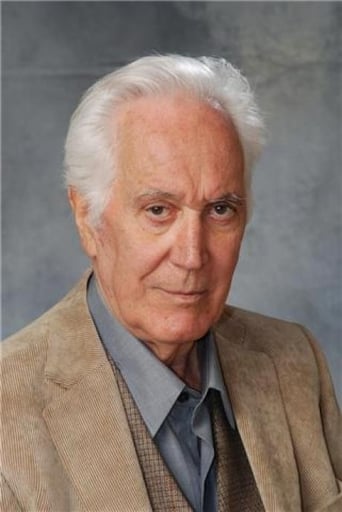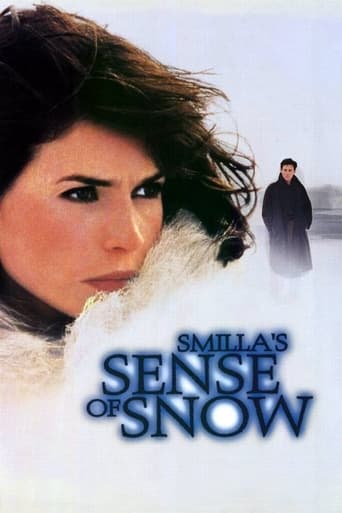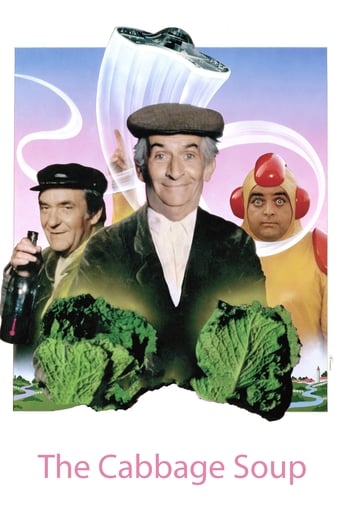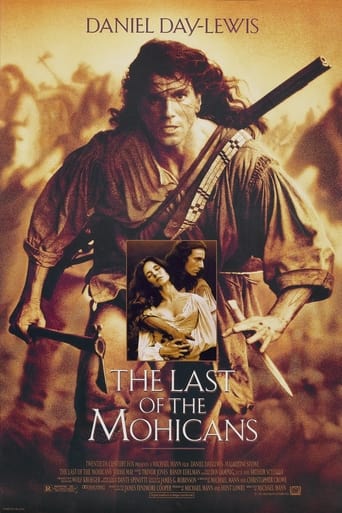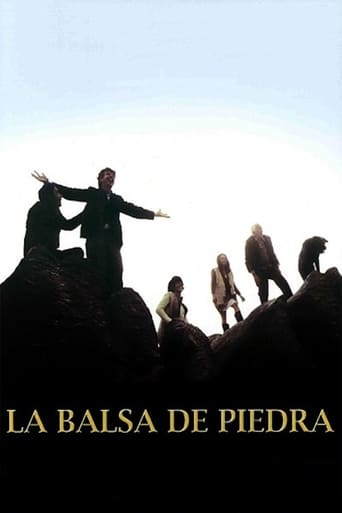

The Stone Raft (2002)
An inexplicable crack in the Pyrenees Mountains provokes excitement and scientific curiosity. As the geological fracture deepens and widens, the European community begins to disassociate itself from the calamity, and panic ensues among tourists and residents attempting to escape. When Spain and Portugal physically separate from the continent, the detached Iberian peninsula aimlessly floats off to sea, becoming home to a group of god-like humans.
Watch Trailer
Cast


Similar titles
Reviews
How sad is this?
It's funny watching the elements come together in this complicated scam. On one hand, the set-up isn't quite as complex as it seems, but there's an easy sense of fun in every exchange.
After playing with our expectations, this turns out to be a very different sort of film.
what a terribly boring film. I'm sorry but this is absolutely not deserving of best picture and will be forgotten quickly. Entertaining and engaging cinema? No. Nothing performances with flat faces and mistaking silence for subtlety.
Of course the Iberian peninsula can never be physical separated from the European continent. At least not until the end of the world anyway. But this films by director George Sluizer tells a story based on this impossible scenario. Not credible and silly you say, but once you push aside this critique the film actually is fun to watch.The protagonists are two women and three men, augmented by the presence of a dog. There is human interaction among them, and love, and isolation. You can tell only Europe will produce a film of this nature. I have watched it twice over a course of three years and enjoyed it each time. I will recommend this film to lovers of international cinema for sure.
Unexpected things are seen happening all over the Iberian peninsula. In Spain, Jose, a school teacher, sees a flock of starlings flying overhead; the birds seem to follow him. Joaquim, who has been fishing, returns home and throws a stone to the sea, and instead of sinking, it is seen jumping over the water. Pedro, a pharmacist, senses how the earth trembles. Joana tries to erase a line on the earth, but it keeps reappearing.All of these characters plus Maria, are drawn together as these phenomena is playing a big part in their world. Maria, who has a small farm, is the only one who has her feet on the ground and acts as a steady influence. From Portugal to Spain, the five new friends embark in a journey of discovery as they try to comprehend what is going on. Supposedly, the Iberian peninsula will crash against the Azores islands as Iberia is moving southward. Upon reaching the Pyrinees, the group finds out they have been separated by the rest of Europe and that France really has never existed! George Sluizer's take on the Jose Samarango's enigmatic novel presents the viewer with a lot of ideas. The mere idea of the separation of the Iberian peninsula is preposterous, but in Samarango's view, he might feel they are all alone, or a land surrounded by water from all sides.Federico Luppi is Pedro, an older man whose life is drawing to a close. Mr. Luppi, one of the best actors working in Spanish cinema makes an impression with this enigmatic man. Iciar Bollain, is Maria. Gabino Diego, Ana Padrao and Daogo Infante, are seen as the other members of the wandering quintet.The film is full of symbolism that will be lost to anyone viewing the film as entertainment. Mr. Samarago is showing us how myths and superstitions can take us in a different direction. Mr. Sluizer directed with an eye for detail in presenting this story.
Don't be put off from this one. I'll try not to mislead: First, this is a *fable*, an allegorical story no, not pretentious myth, and not at all meant to be taken literally (or technically!). Also, I don't think it's meant to be an "art film." Don't take it so seriously... but then again, take it seriously in another way; it is a cautionary tale.Also, it was meant primarily for a European audience. Don't ask it to be a brash and blunt American movie. (Compare and contrast it, as an exercise, with the satiric tone found in "Wag the Dog.") Its tone is more like that of "Life Is Beautiful" perhaps, if you need comparison, but not as hokey.Okay, it's a disaster film, yes, but it's also a love story with a point. It's light but it uses satire, and I can even almost see it rolling its eyes at the "reviewers" who smirk at its "lack of continuity" and "technical errors" - they miss the point, and likely have missed the boat which has already departed. (Hence the film's title.) (Don't look now, but in some ways, the world's already begun splitting beneath our feet...) I also don't know where the IMDb page's film description comes from (about "...a group of god-like humans"); absurd. But as it is with all fables, myths, or symbols, our pronouncements say more about us than about the item we discuss.Go to the "external reviews" link, at the left, and read the sensible review by Roger Ebert, or the Village Voice's description ("... strikes a delicate balance between magical realism and biting political satire in this engaging allegory of failed pan-European aspirations").Like those reviewers, I found the film highly enjoyable, full of heart and sincere, and having a great European sense of humor. I found myself wondering, as Mr. Ebert did, about things it brought up: about fault-finding (pun intended), about chaos theory, about the EU, and about what really matters ... and about what happens when we drift apart.
The anecdote of Saramago's novel may be novel in his hands, but that is because of his prose, his talent or his Nobel status. The adaptation origin of this movie is terrible. First is full of technical errors, continuity to start. Second problem is the dialogue. Every time Luppi speaks is to mouth a sentence. For a moment it seems Sluizer has a problem understanding Spanish, specially since all the actors lines are spoken in a stiff robotic manner. The mass chaos images are the saddest note. When the crowd is supposedly driven by panic, to catch a few extras laughing doesn't help the trick. The contrived plot is the last item This one I suffered until the end: the peninsula as a middle step between America and Europe may sound good in a high-school essay, but as the chore of the plot is a very poor excuse. I expected more from the director of The Vanishing (I should have remembered that he directed Crimetime too).


